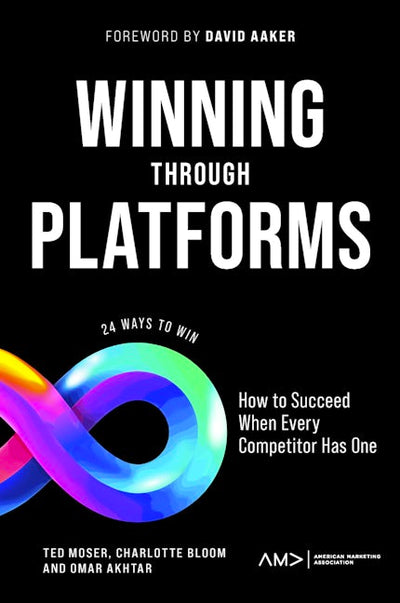You may also like
The Notorious ESG
Regular price $25.99 Save $-25.99Environment, Social, Governance (ESG) has become the noun, verb, and adjective of the modern business era. Faced with societal and regulatory pressure, big business in America, Asia, and Europe has been forced to define and articulate ESG goals to combat climate change and save the planet. The only problem is that ESG has been captured by the PR hype machine as a few prominent business leaders make bold promises to save the planet but are vague about how they propose to achieve this. Eager to showcase their green credentials, companies are making all kinds of promises to reduce their carbon footprint and to play their part in reducing global warming and improving social outcomes. How to separate fact from fiction and exaggerated commitments from realistic goals?
Vasuki Shastry spent several years at the coal face itself – running ESG for a major international bank in the City of London – and argues that corporate cultures are too focused on the profit motive and quarterly business targets. Change can only really come through a paradigm shift for business which aligns business with social purpose. Getting there will require a corporate revolution which will disrupt and dislodge the ancien régime and usher in a new age of sustainable business. The author offers a solution in the form of a Climate Manifesto for Business that will Make Our Planet Great Again!

Festschrift in Honor of David R. Maines
Regular price $124.00 Save $-124.00David R. Maines (1940-2021), one of the most important sociological scholars of the 20th and 21st centuries, constructed a vast area of research to advance the field of symbolic interactionism during his career. Highlighting the significance of Maines’ works in symbolic interactionism, Festschrift in Honor of David R. Maines documents his most celebrated areas of scholarship, including social structure, narrative sociology, social interaction, dialectic perspective, temporality, and mesostructure.
Including stories from individuals who knew Maines via kinship, friendship, or professional relationship, the chapters conclude with two new empirical studies to reflect Maines’ interest in continually advancing the field with cutting-edge research. The collection also features a list of Maines’ selected works for further reading to guide other symbolic interactionists in their research endeavors.
Volume 57 of Studies in Symbolic Interaction is a source of both consolation and celebration for those who knew David R. Maines, as well as those who have just begun to discover his inspiring work.

Winning Through Platforms
Regular price $23.99 Save $-23.99Winning through Platforms achieved #1 bestseller status, and is a Best Business Book Awards winner for 2024. It is your new go-to guide for modern competitive advantage.
Digital platforms are no longer for just the tech elite. They’re spreading to every company and industry, powered by the growth of customer sensors, streaming data, and artificial intelligence—lighting the valuable customer Use journey that was formerly dark.
How will you succeed when your markets get platform-crowded? Three senior advisers to the world’s leading technology companies reveal how to win through platforms when every competitor has one.
Winning Through Platforms decodes growth moves from a decade of platform competition, communicates them through a platform playbook. It’s a treasure trove of 24 proven platform strategies—such as customer coalition design, in-use enrichment, AI branding, and much more. These playbook strategies are delivered through engaging stories of over 50 companies, plus proprietary frameworks and workshop-style questions that lead you to act.
This game-changing playbook will teach you how to:
- Revitalize your business through strategic use of platforms
- Design platforms that are compelling to customers and hard for competitors to match
- Accelerate in-market growth through brand-and-demand excellence that spans your customer’s entire platform journey
- Innovate in high-impact benefit areas to differentiate your platform
- Elevate your customer’s personal platform experience
- Transform your enterprise and operations to drive superior performance
Every CEO, innovator, go-to-market leader, and aspiring professional will gain valuable insight through this book. Whether your company is just starting on its first platform journey or is a born platform disruptor, this book will transform your ability to win.
Learn the platform playbook. Find and apply your plays.
This book forms part of the American Marketing Association (AMA) leadership series.

Empirical Design in Structural Engineering
Regular price $60.00 Save $-60.00Empirical Design in Structural Engineering explores the history, applicability and uses of empirical design. This book aims to show that empirical design is practised much more widely than is generally understood, that it can make a particularly valuable contribution to your structural engineering design, and that it can be found embedded within the procedures of rational engineering design. Through examples of practices from North America, Europe and Asia, the author investigates the capabilities of the key materials for structural engineering – steel, concrete, wood and masonry – and how they connect to engineering, especially the engineering of building structures.
This book also considers the value of prior experience in determining the configuration and size of designed structures including bridges, buildings and other structures. With case studies that focus on historic structures, forensic engineering and reinforced concrete, this book explores: philosophical empiricism and rationalism; engineering empiricism and rationalism; empirical builders and their products; contemporary building codes; ethical issues in the application of empirical design; and contemporary uses of empirical design.
This book will be of interest to any student or practising engineer interested in the role that empirical design can play in their project. It will have additional appeal to those interested in or engaged with architecture, construction management and buildings management..

Public Administration, Civic Engagement, and Spanish-Speaking Communities
Regular price $61.00 Save $-61.00Public Administration, Civic Engagement, and Spanish-Speaking Communities builds on the first bilingual (Spanish–English) special session at the National Academy of Public Administration’s 2022 Social Equity Leadership Conference. Expanding on the themes of that groundbreaking conversation, this interdisciplinary volume addresses the urgent need to center multilingual voices in the pursuit of social equity in public administration. It examines the lived experiences and systemic challenges faced by Spanish-speaking communities in the United States—from language and cultural barriers to generational divides and unequal access to technology—while also highlighting innovative approaches to inclusive service delivery and democratic participation.
With 31 contributors representing diverse identities and disciplines, this volume models walking the social equity talk. Most chapters are coauthored by teams of scholars, students, and practitioners at different career levels, bringing forward the voices of Spanish-speaking communities alongside allies and social equity champions.
Designed for faculty, students, researchers, and practitioners alike, the book offers both breadth and depth: each chapter can be read on its own, yet together they create a comprehensive portrait of civic engagement, governance, and social equity in Spanish-speaking contexts.

Overcoming Workplace Loneliness
Regular price $60.00 Save $-60.00Humans are fundamentally social beings who crave belonging, mission, and meaning, especially at work. Drawing on the increasing prevalence of remote work in the post-pandemic era, this book asks how organizations can overcome workplace loneliness and create a sense of belonging.
Prioritizing the need to create authentic workplaces to promote inclusion and empower employees to feel comfortable being themselves, chapters present strategies for addressing workplace loneliness based on interviews with remote employees and an examination of successful organizational practices. How, contributors ask, have remote employees experienced workplace loneliness in their organization? What is the role of belonging in tackling this? How can leaders and HR practitioners foster this belonging among remote employees? How does social identity affect employees’ abilities to connect within their organization?
Rooted in real-world research and insights, Overcoming Workplace Loneliness envisions a world of work where all employees feel valued for their authentic selves and are able to experience the encouragement and comradery of office connection from the comfort of their homes. This pioneering book not only sheds light on workplace loneliness of remote employees, but also provides an in-depth literature review of workplace loneliness to inspire future research.







